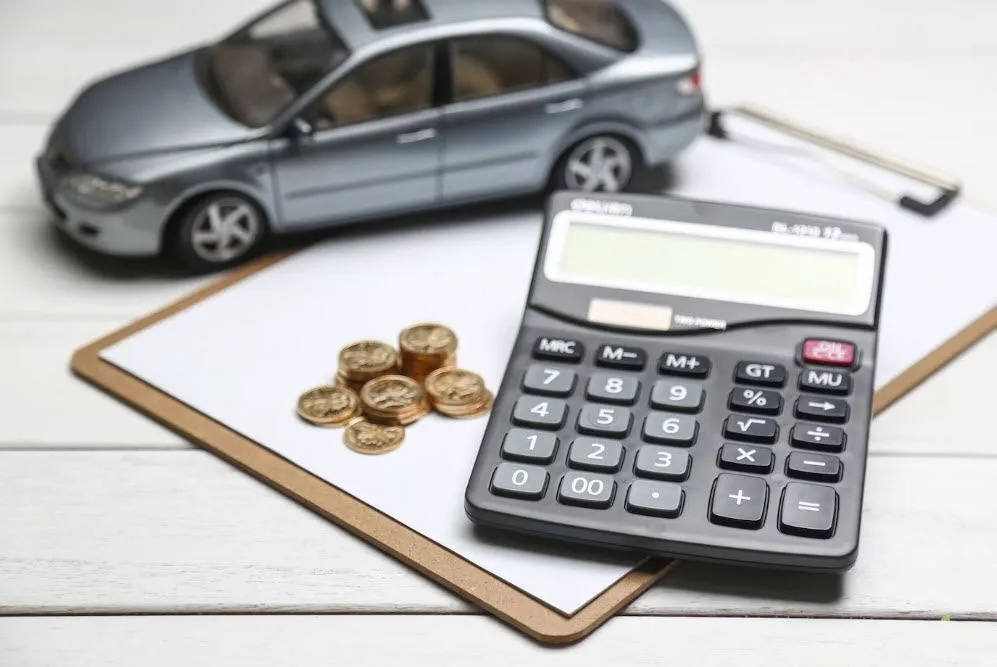 Car Value Estimator
Car Value Estimator
Enter VIN to Get Detailed Estimations & More Vehicle Info!
When you’re selling your car, you’d want to have your car value in mind so to sell it for the best price possible. But how is a car value determined and where do we find the authentic data? This post explains the important car value terms and how do we estimate it with cost-effective tools.
1. Car Value Types
When we say car values, we’re actually referring to the potential price the car could sell at in the local market. So the car value categories are tightly associated with the ways you trade it. Basically there’re 4 kinds of car values that we often use:
- Auction value: If you want to put your car up for auction, this is the value your car probably is worth. And normally it’s the highest across the categories.
- Retail value: This shows how much the average dealers would sell your car in the current market. It would be the second highest pricing.
- Private seller value / Private party value: This is the price other private sellers normally would set for your car. It’s usually a little lower than the retail price.
- Trade-in value: This is how much you might earn when selling your car to a dealership. And it’s significantly lower than the above value types as most dealers want large profit margins.
And there’re other car value terms that you might want to know about:
- MSRP: Manufacturer’s recommended price. It’s the market value the vehicle’s manufacturer sets to sell when it’s brand new.
- CPO value: Certified pre-owned value. A CPO is a certification from a used car’s manufacturer, officially approving that the used car is in good condition. This value is often higher than the retail one.
- Asking price / Sticker price: This is the quotation the seller gives for your first inquiry.
- Closing price / Agreed-upon price: This is the final price for a closed vehicle trade deal.
2. Best Car Value Estimators
Now you’re familiar with the car value types. And according to your needs, you might have decided which value you’re to look up for your car. Here we recommend you 3 best tools that we’ve tested and trust to check your car worth. They can cover the most different kinds of needs for buying or selling your vehicle.
BeenVerified – Adjustable Features & More Details
BeenVerified is a versatile search engine for vehicles and people. It’s approved by NMVTIS to provide the official vehicle history data. When you search the car value here, the result is not just a few numbers, but rather filters and spectrums. You can set things like mileage and location to see how your car’s worth might fluctuate. And you may see the price range you could set for your vehicle according to your vehicle condition.
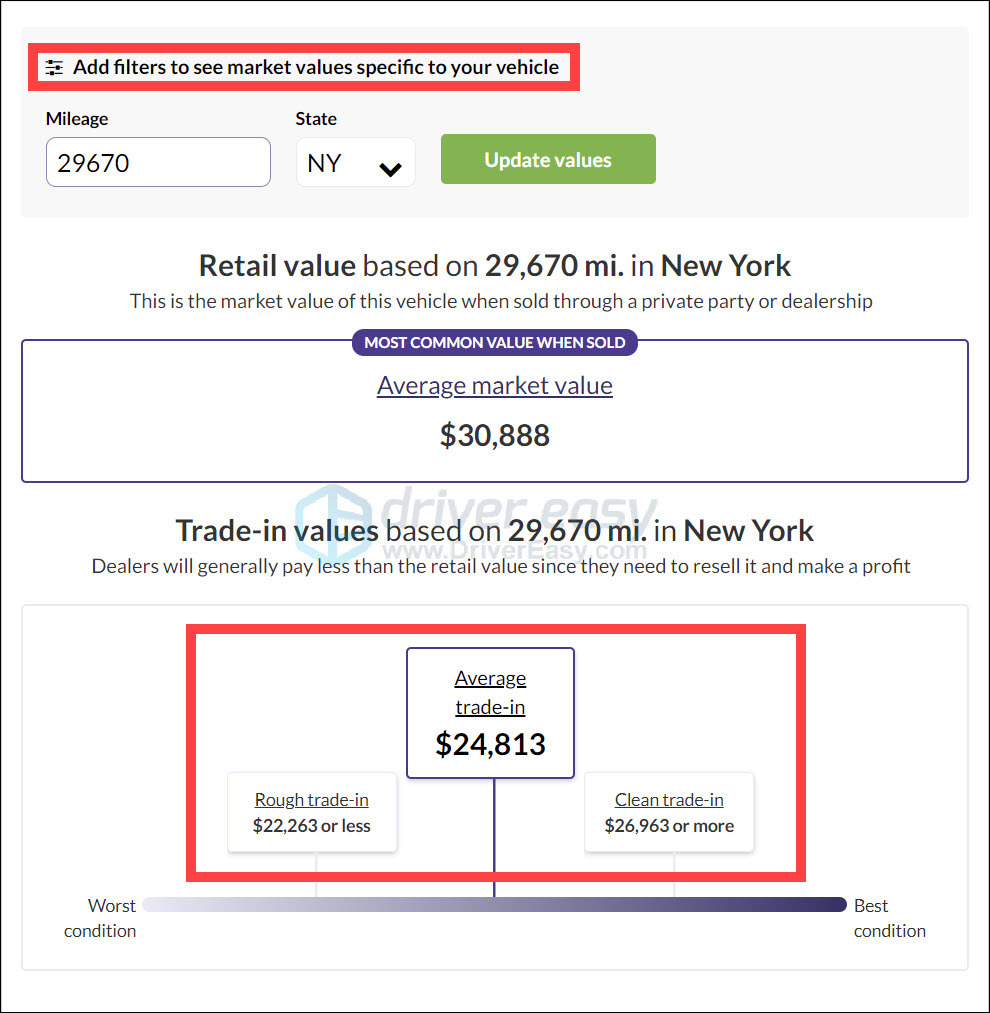
Moreover, you can switch on the Alerts to monitor the market value changes when you’re not in a rush to close your deal. BeenVerified‘s data are all from top industry sources and the updates are simultaneous.
1. Go to BeenVerified Vehicle Search.
2. Enter the VIN number or the license plate of your car and click SEARCH.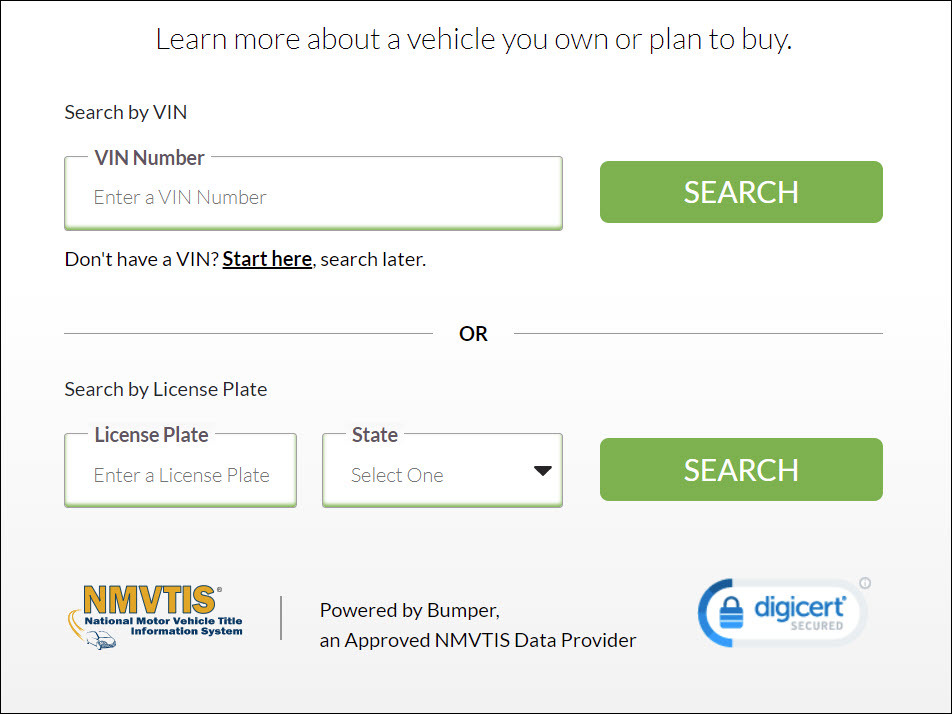
3. Wait for BeenVerified to load the full vehicle report. By Market Value you can see how much your car’s worth. And there’re whole other 13 categories of information on your vehicle that could affect the estimation for you to browse.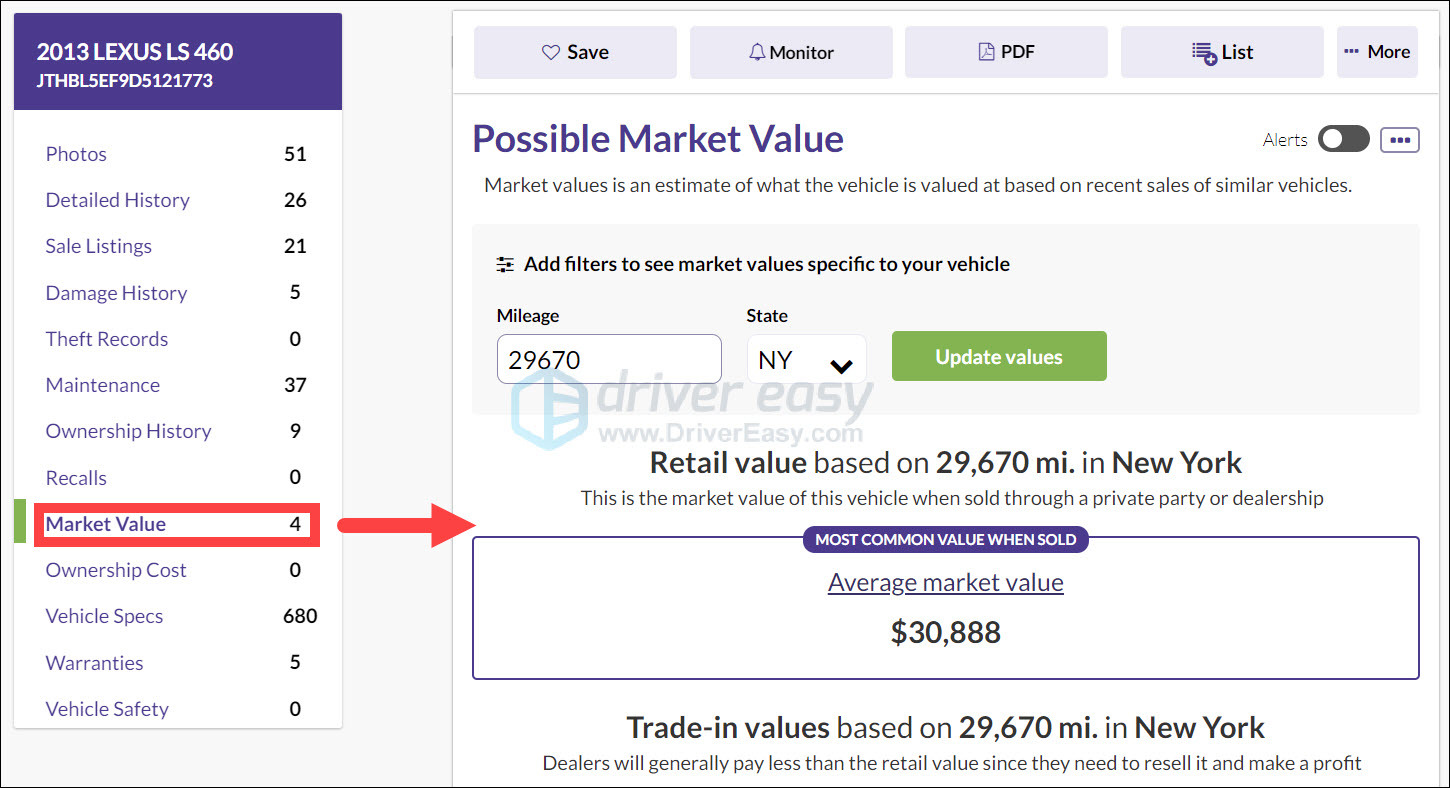
Bumper – Market Trend & Quote Discounts
Bumper is a professional vehicle search tool with an amazing car value checking feature. It’s an official data provider for NMVTIS, NHTSA and JD Power, etc. Four filters are there for you to set to get the retail price range for your car: year, make, model and trim.
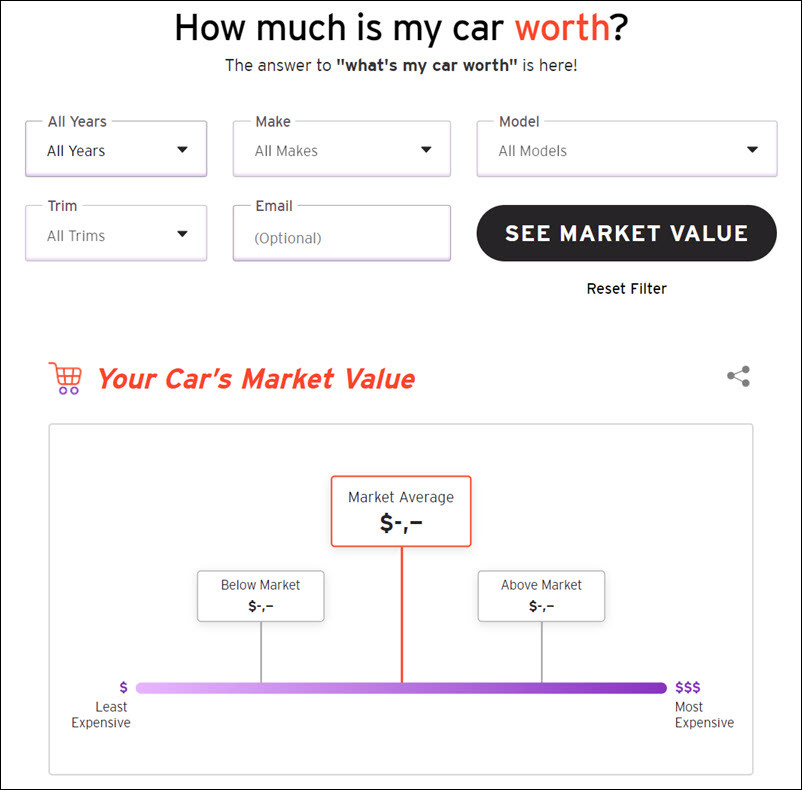
And if you care about more details over your car value, like data of more types, the market prices for similar cars, the affecting vehicle history events, and the insurance records, you’re at the right place for a thorough vehicle value report as well as for a free quote comparison and a purchase discount.
1. Go to Bumper Vehicle Search.
2. Enter the VIN number or the license plate of your car and click SEARCH.
3. Wait for a few seconds when Bumper generates your vehicle report. The detailed car value report is at MARKET VALUE. And you can always navigate to whichever of the 15 aspects to dig deep into the vehicle history data.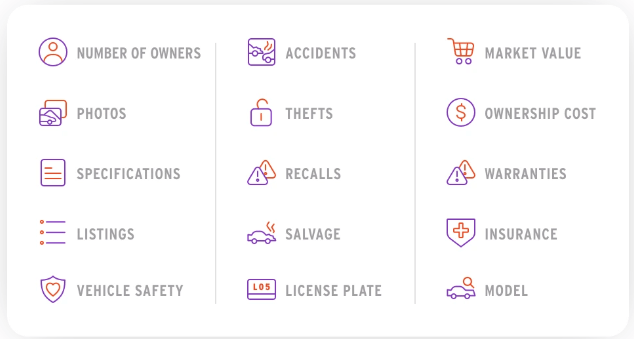
EpicVIN – Similar Cars & Strong Data Sources
EpicVIN is a vehicle search service with high-tech analysis system. It’s also an approved data provider for NMVTIS and other 70+ official databases. For your car value calculation, it grabs real-time data from top auto traders and governmental records for your vehicle history. Then it shows the analysis results in AI generated charts. You may see the auction price range and the dealer price range, and also the price history for your car along with important factors.
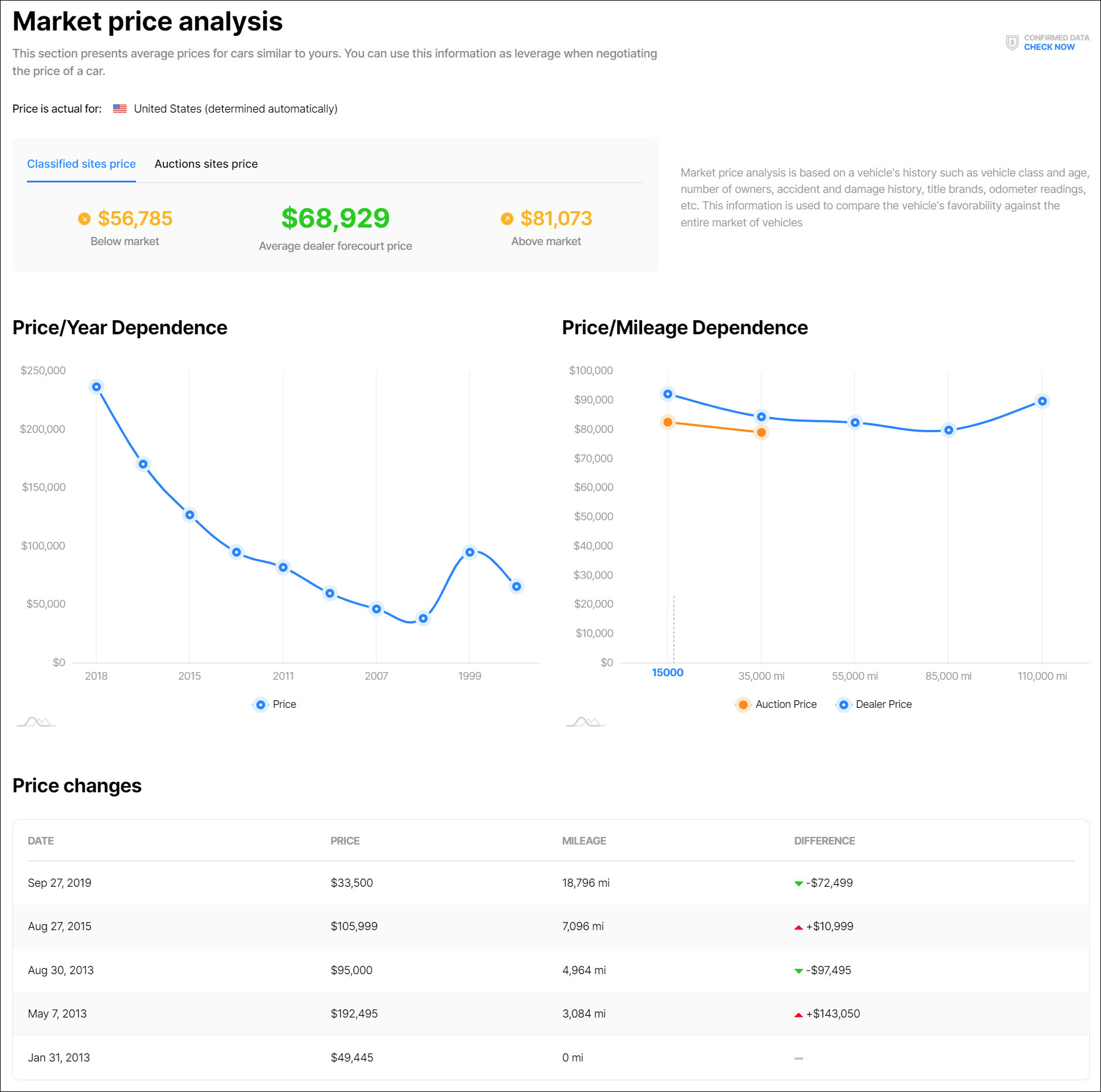
And if you want to see the source data yourself, EpicVIN offers you the access to the vehicle trading sites it refer to. Apart from the market price analysis, it provides a service called Similar cars in your area. There you could see cars for sale which are in similar condition as yours. Besides, you can find other convenient little tools like a free odometer check or a free title check, which both can affect the car pricing significantly.
1. Navigate to EpicVIN Vehicle Search.
2. Enter the VIN number and click Check VIN > or enter the license plate and click Check Plate >.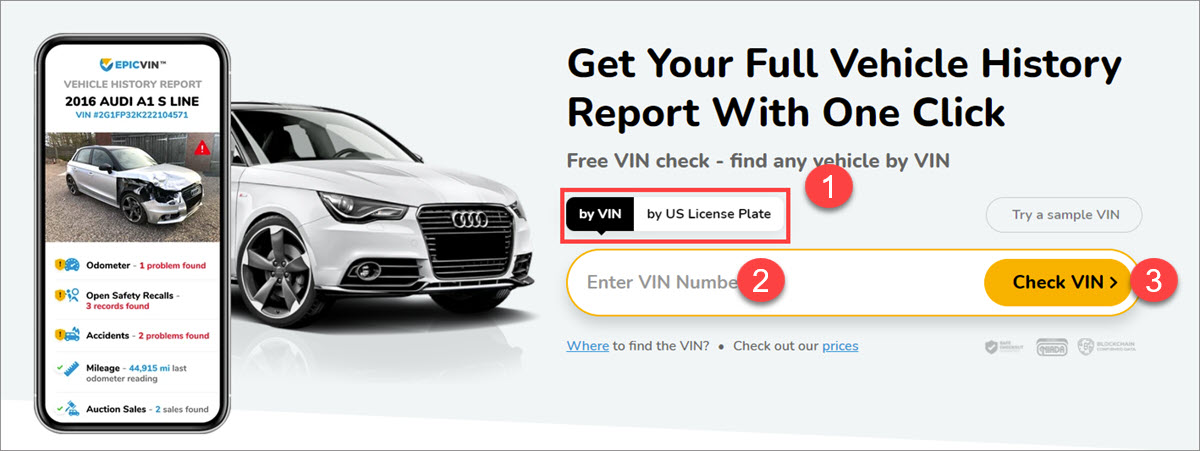
3. EpicVIN will prepare the report in just seconds. The navigation bar is on the right and Market price analysis is where you want to go.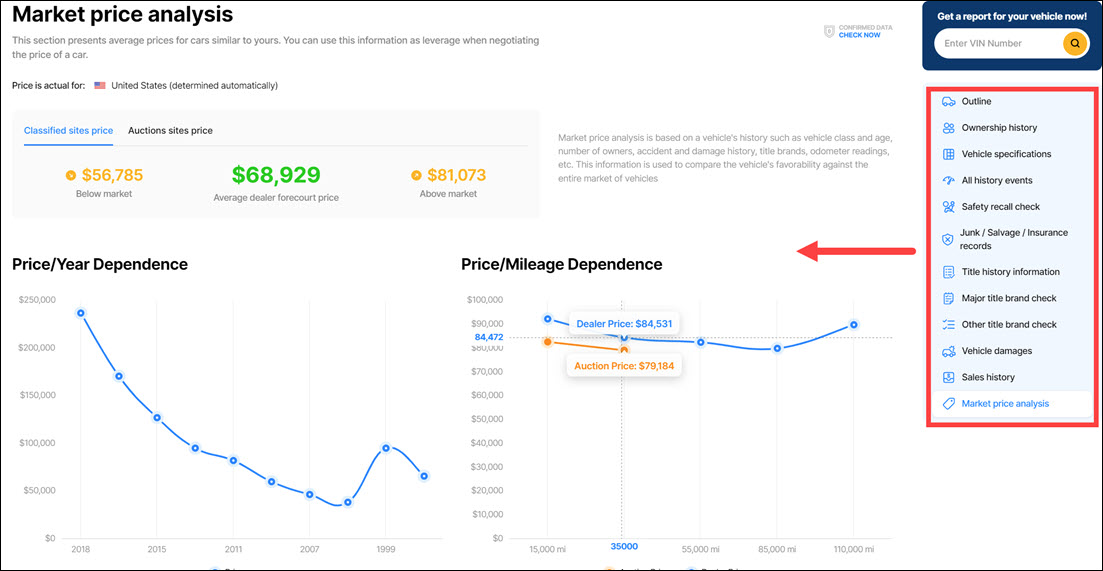
3. Car Value Indicators
The car value estimators above all have their own algorithms, giving weight to different data and aspects that they think are dominant for deciding your car’s worth. But what are these factors exactly? We’ve sorted out the most important ones for you:
- Age & Mileage: These two factors are functioning in a comprehensive manner. Under 5 years, mileage is more important to consider. And don’t forget to check the odometer reading, some might rewind it for a better pricing.
- Make, Model & Trim: The fundamental factors. All the evaluation happens on the depreciation of the MSRP (Manufacturer’s Suggested Retail Price), which is determined by these three factors.
- Condition: The aging of the upholstery, the maintenance of crucial parts and so on.
- Title Status & Accident History: Severe title brands like salvage or junk could lead to significant depreciation of a car’s value. The accident and flood history would also make the vehicle worth less, even in condition check the damages all got repaired.
- Location: Where is the vehicle sold? It points to the whole environment of the vehicle market and the industry chain.
That’s the whole guide to find out your car’s worth in the current and local market. It’s easy to get a whole picture about your vehicle’s value in different situations. And if you want the quickest way, just try the convenient car value estimators like BeenVerified and Bumper. Hope you find this article helpful, and feel free to leave a comment below!




